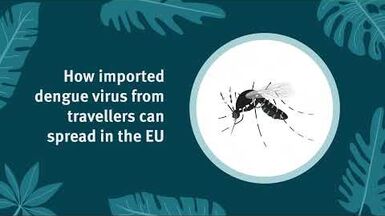ECDC and Europol organise annual Biorisk Awareness and Mitigation training
The annual Cross-sectoral Biorisk Awareness and Mitigation (BAM) training took place from 5–7 November 2024 in Athens, Greece.
The three-day training was organised by the European Centre for Disease Prevention and Control (ECDC) in collaboration with the European Union Agency for Law Enforcement Cooperation (Europol) and included representatives from the public health, civil protection, and law enforcement sectors in the European Union/European Economic Area (EU/EEA) Western Balkans and Türkiye.

The first day opened with welcome remarks from the course organisers, ECDC, Europol, and representatives from Greek health and law enforcement authorities. The initial technical sessions covered essential topics, including the characteristics and transmission of biological agents, preparedness for intentional releases, and cooperation across sectors for chemical, biological, radiological, and nuclear (CBRN) incidents. Country reports from Denmark, Iceland, Belgium, and Serbia provided practical insights into national-level responses.
The second day featured interactive scenario-based exercises led by ECDC and supported by experts from various partner organisations. Participants engaged in group activities to practise risk communication, community engagement, and outbreak response strategies, enhancing their practical understanding of biorisk management.
The final day of the training focused on the donning (putting on) and doffing (removing) of personal protective equipment (PPE) and decontamination procedures. ECDC instructors and the Hellenic Police led hands-on demonstrations of PPE protocols and decontamination practices. Additional insights were provided by country representatives from Bulgaria, Türkiye, and Kosovo, who shared their experiences in managing biological threats.
The BAM training promoted cross-sector collaboration and improved preparedness of the EU and neighbouring regions for serious cross-border health threats, highlighting the importance of interdisciplinary efforts in managing biological risks.







